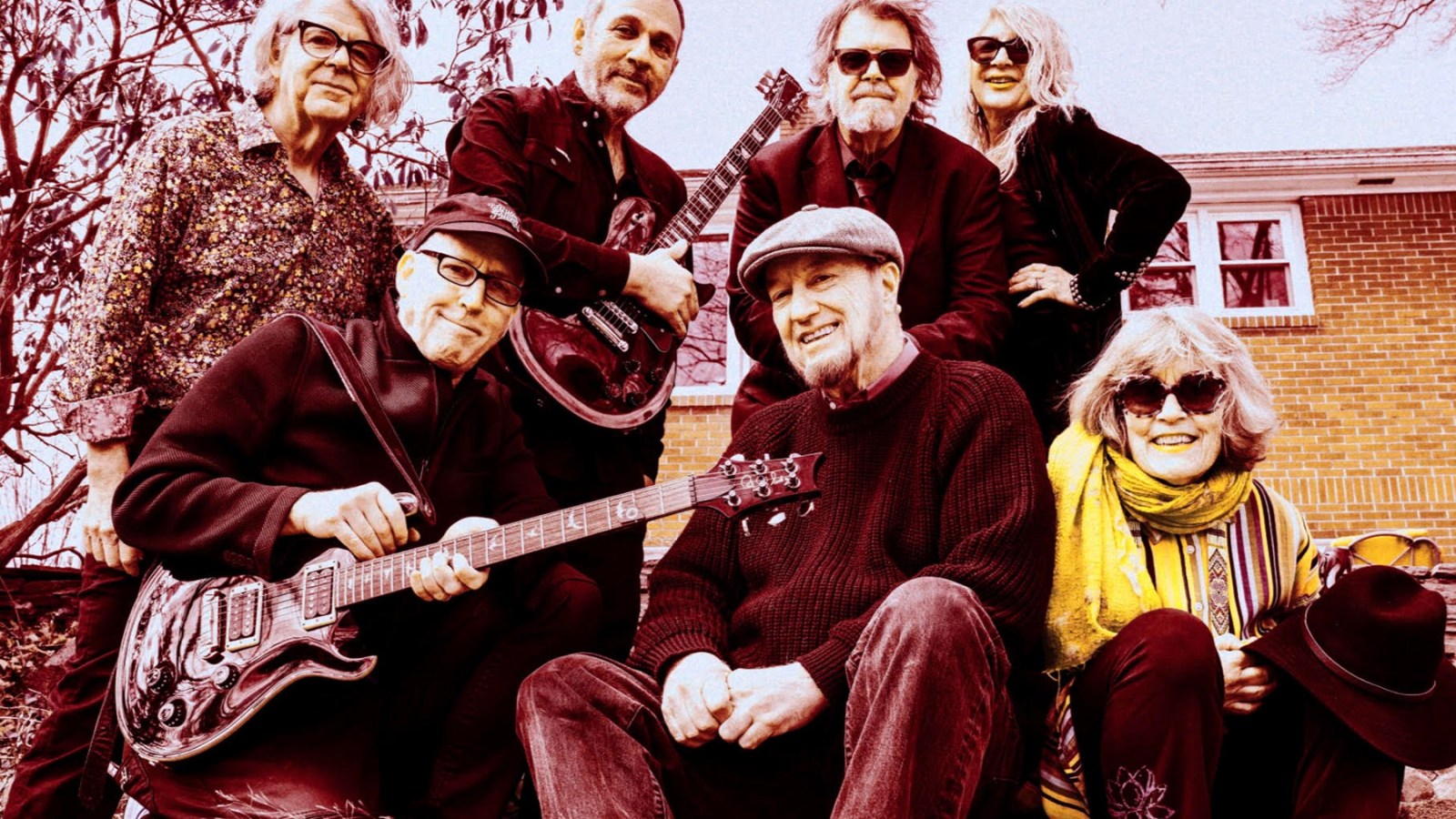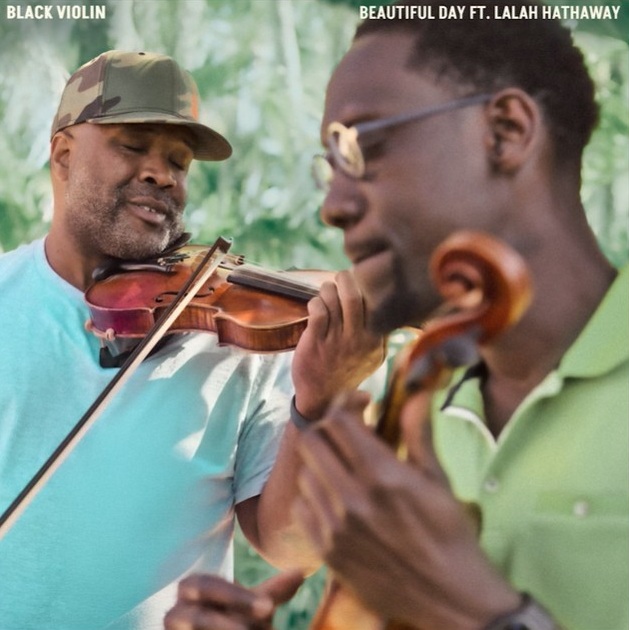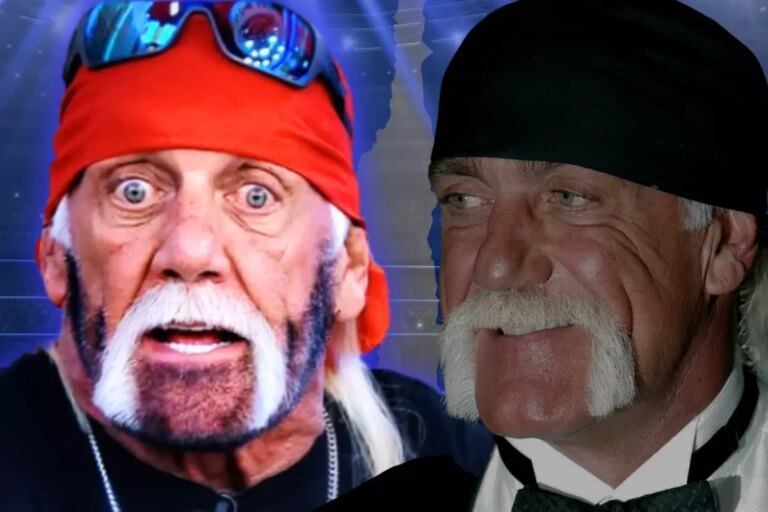For more than a decade, heritage rock artists have been juicing their live shows by recreating their vintage albums start to finish. That list includes Neil Young (Everybody Knows This Is Nowhere), Bruce Springsteen (The River), U2 (The Joshua Tree), Sonic Youth (Daydream Nation), and Steely Dan (every one of their records). This fall, Patti Smith joints the list when she’ll be playing all of Horses to mark its 50th anniversary. An entire Canadian company, Classic Albums Live, is devoted to this trend, with a group of largely unknown musicians covering all of Rumours, Dark Side of the Moon, and other landmarks of the original vinyl era.
And then there’s the curious case of Robert Fripp’s 1979 album Exposure, a cult classic that has never been performed live in its entirety — until this spring.
Loyalists of Fripp and his mothership band, King Crimson, have had their prog jones satisfied multiple times in the past few years. Just before the pandemic, Fripp toured with the most recent incarnation of the band, playing songs from throughout its history. The ongoing Beat Tour, featuring former Crimson members Adrian Belew and Tony Levin, resurrects songs from the band’s Eighties albums with those players.
But even in the context of Fripp’s career, down to his lockdown videos with his wife Toyah Willcox, Exposure has always been a curio. In between Crimson’s first breakup in the late Seventies and its resurrection the following decade, Fripp, newly relocated to New York City from the U.K., pulled together an unconventional solo album that blended genres (from prog intensity to punk rage to singer-songwriter melancholy), musicians (Daryl Hall, Phil Collins, Peter Gabriel, Terre Roche of the Roches) and weirdness (a tape of a family arguing in Fripp’s New York apartment building). “At first I was kind of mystified by it,” Roche admits. “All these strange things being said by different people. It’s very interesting.”
When it was released, Exposure only reached No. 79 on the Billboard chart, but its impact on a generation of no-boundaries music heads was incalculable. “That album landed in the right place at the right time,” says Seattle experimental guitarist Steve Ball. “Exposure was the transition from the prog that had devolved into ELP’s Love Beach and into the Eighties. It was a doorway from one decade to the next. ‘You Burn Me Up I’m a Cigarette’ is almost a punk song. The whole album opened up an entire rich universe of accessible but interesting music for the thinking person.”
The launch of Exposure was equally quirky. Given its cast-of-thousands lineup, mounting a full tour to promote it would have been challenging. In its place, Fripp chose to make appearances in record stores and clubs that seated no more than 250 people, playing Frippertronics, the trance-inducing instrumental music he spun out with his guitar and tape loops. (He even played that way when he appeared on Midnight Special that year.) As he told Rolling Stone at the time, he was eager for “human contact” with fans after his big-league era with King Crimson. Over the years, Fripp has revisited Exposure in expanded deluxe editions. But aside from the time he joined Hall and John Oates onstage in New York to play “You Burn Me I’m a Cigarette” way back when, hardly any of its songs have been performed in more than four decades.
Fast forward to a few years back when Don Box — a guitarist, writer, recording engineer, and participant in Fripp’s Guitar Craft gatherings — transcribed and arranged a version of Exposure‘s “Breathless” for acoustic guitar, then continued with two more tracks from the album. It took a while, but that simple idea blossomed into Exposure, a Fripp-approved ensemble that, this spring, finally let people hear what that entire album could sound like onstage, even if Fripp himself wasn’t involved.
After Box had started playing his versions, another longtime Fripp student and guitarist, Fernando Kabusacki, suggested they keep going and perform the whole album, and with a full band. “I was 15 years old in Argentina and it blew me away,” Kabusacki says of hearing Exposure as a kid. “It was a different way of making music and making an album. It didn’t have to be a rock album or jazz album or instrumental. It was just music. At that stage, that was a big thing for me, that openness.”
Fernado broached the idea to Fripp, who gave the musicians his approval and a promotional quote (“Full support and encouragement. Rock out!”), and suggested they recruit Roche as well as King Crimson drummer Pat Mastelotto. Roche, who hadn’t spoken with Fripp since he produced the Roches’ 1982 album Keep on Doing, sensed Fripp was intrigued by the idea of younger musicians resurrecting a 45-year-old album. “I got a great feeling from him about this, that he was all for this idea,” she says. “Maybe he was looking to see if we could actually pull it off.”
As the musicians learned, mastering each song on the diverse, half-vocal and half-instrumental album was a challenge, from the tunings to the intensity of jacked-up tracks like “NY3,” which has four profoundly fast passages. “Robert plays 128 beats per minute, and I can barely play 126,” says Kabusacki. “I went to him and asked if we could change some notes, and he said, ‘Change all the notes if you like.’”
The band reached out to Daryl Hall, who sang several songs on the project, and was told his schedule wouldn’t allow him to participate. So it fell to Roche (who first worked with Fripp when he produced the Roches’ 1979 debut trio album) to sing most of the songs onstage, including the stripped-down redo of Gabriel’s “Here Comes the Flood.” It also fell to Roche, of course, to throw herself into the album’s title song, where she unleashed wild-eyed screaming unlike anything she sang with her sisters in the Roches. As Fripp told RS in 2022, regarding some sonic tweaking on the song, “I took a three-second stream and made it a four-second scream or something like that. But it’s terrifying. The depth of angst in that scream, whoa, still gets me to this day. Terre went to that place and brought it back. You don’t ask a poet to explain their poetry. You just read the poem and say, ‘Whoa, yeah.’”
Roche admits that the thought of revisiting that moment onstage, decades later, was the great unknown. “I wasn’t sure I could even make that noise,” she says. “But when we were in the studio in New York rehearsing, I walked in during the middle of that song and just grabbed the mic and started shrieking. I thought, ‘Huh, I can still scream.’” Hinting at these crazy times in America, she says, “I have more to scream about now. I feel like screaming.”
On the Exposure band’s initial spring tour — shows in New York, Boston, Philadelphia, and other cities —curious and attentive FrippHeads experienced their cult fave album beginning to end, down to the telephone rings at its start. The show also included Roche and several backup singers tackling Roches songs that Fripp had produced, like “Hammond Song,” with Ball replicating Fripp’s hallmark solo.
In later shows, the band also slipped in versions of King Crimson’s “Discipline” and “Red.” “Our original thinking was to pull material from the period after Red and before Discipline, so no King Crimson material,” says Box. “However, during our last week of rehearsals, we pulled together an acoustic medley of ‘Red,’ ‘Breathless,’ ‘Discipline’ and ‘Heptaparaparshinokh’ [by Fripp’s League of Gentlemen side project] just for fun. We performed it at the first few shows, but we got feedback that people wanted to hear ‘the hits’ in all their glory, so we transitioned to just playing each of the pieces on electric.”
Where the tour goes next is as unpredictable as the enduring appeal of Exposure itself. The band (which also includes pianist Garry Dial and singer Deb Mastelotto, who fills Hall’s vocal shoes on “You Burn Me Up I’m a Cigarette”) is hoping to play more Exposure shows later this year, possibly on the West Coast. Fripp himself suggested Italy, where he has a large following. And maybe with more players too. Ball says there’s an “open invitation for the original Broadway cast of Exposure — anyone who wants to come join us anywhere.” (Will Hall make time for a song or two? Will Collins emerge from retirement to recreate his drums on “Disengage”?) Fripp has hinted that he could join the band here and there, although likely only as a guest speaker rather than performer.
Beyond the novelty aspect of hearing an entire album played live that’s never been heard onstage, Ball feels there’s a reason Exposure still resonates. “Something is hitting a chord,” he says. “It doesn’t feel like nostalgia to me. ‘Here Comes the Flood’ was talking about a great change in the earth in 40 years. It’s like Nostradamus describing 2025. Maybe the album has a second life because we didn’t learn anything in the Eighties.”



